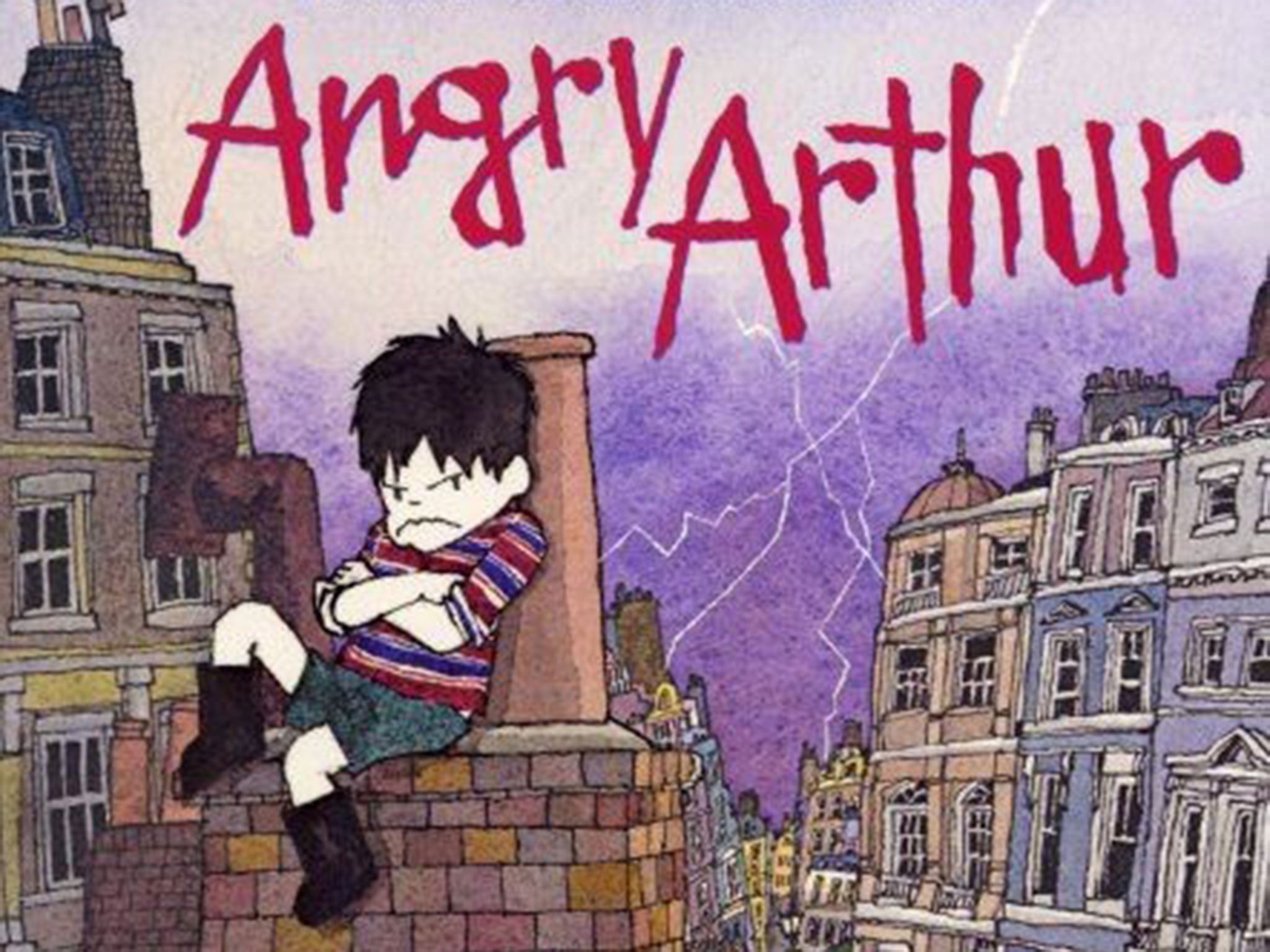Angry Arthur by Hiawyn Oram & Satoshi Kitamura, book of a lifetime
The text is less than 200 words, but its impact on Max Porter is comparable to that of The Tempest, or the Norse myths

Your support helps us to tell the story
From reproductive rights to climate change to Big Tech, The Independent is on the ground when the story is developing. Whether it's investigating the financials of Elon Musk's pro-Trump PAC or producing our latest documentary, 'The A Word', which shines a light on the American women fighting for reproductive rights, we know how important it is to parse out the facts from the messaging.
At such a critical moment in US history, we need reporters on the ground. Your donation allows us to keep sending journalists to speak to both sides of the story.
The Independent is trusted by Americans across the entire political spectrum. And unlike many other quality news outlets, we choose not to lock Americans out of our reporting and analysis with paywalls. We believe quality journalism should be available to everyone, paid for by those who can afford it.
Your support makes all the difference.My book of a lifetime is Angry Arthur by Hiawyn Oram and Satoshi Kitamura. It is about a child who is told to stop watching TV and go to bed. He gets angry and angrier and destroys… everything. He ends up sitting, alone, on a chunk of Mars, wondering why he was so cross.
The text is less than 200 words, but its impact on me, over the years, is comparable to that of The Tempest, or the Norse myths, or Beckett. The illustrations are exceptionally beautiful. Sometimes with the sparseness of a broken stage set, sometimes intensely detailed and rich with witty details (the cigarettes being blown from the billboard advert), and then shifting into different dimensions. Arthur's anger is so great the conventions of the illustrated book melt.
The book came out the year after I was born, so I like to think we've grown up together. As a five-year-old I considered it to be a terrifying and radical proposition. It seemed electrifyingly cheeky for an adult to credit us, little children, with these powers, and to portray a bumbling world of adults who would have no choice to stand by gently pleading with us while we unleash our limitless destructive potential. It understands that a tantrum is a dangerous thing, a necessary thing and a seriously pointless thing.
As a teenager I was amazed by the graphic intensity and the poetic simplicity, and I felt here was a story that spoke to all ages, all rages, all fantasies. In the haze of jungle music and existential angst and first love, I thought of Arthur often. As an adult, reading it to my children, I think it's truly profound. It has the carefree magic realism of the simplest and oldest creation tales, combined with bone-dry humour. The page in which Arthur creates a universe quake, where his anger destroys all things, all language, all images, and there are multiple vibrating Arthurs, this is my favourite page of any book. For me it is right up there with Ted Hughes' Crow, Francis Bacon's popes or Mahler's “Ninth”. I also read it (perhaps incorrectly) as a book about the nuclear weapon, which in 1982 we were as concerned about as we should be now. This is the boy pressing the red button, becoming destroyer of worlds and not being able to remember what the fight was about.
Max Porter's first book is 'Grief is the Thing with Feathers' (Faber)
Join our commenting forum
Join thought-provoking conversations, follow other Independent readers and see their replies
Comments